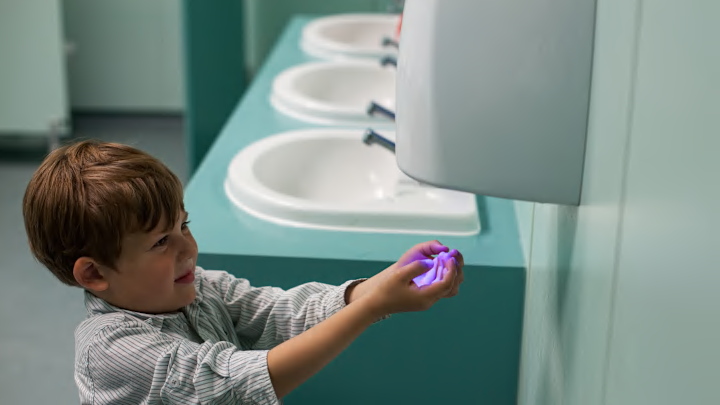Using a public restroom can be a stressful experience. People inevitably shake the flimsy stall doors—or, even more egregiously, peer under the gaps—to check for occupancy. Soap can be missing and gastrointestinal noises can be heard. Now, a new study has found that the perils of public voiding may not end at the sink.
The wall-mounted hand dryers, often believed to be a sanitary solution, could be blasting fecal bacteria right back on your hands.
A report published in Applied and Environmental Microbiology in 2018 looked at 36 bathrooms at the University of Connecticut School of Medicine. Researchers collected samples of bacterial colonies on plates. A typical bathroom air sample averaged less than one colony, while those positioned under a hand dryer for 30 seconds averaged 18 to 60 colonies per plate.
The researchers couldn’t determine whether the dryers were actually harboring bacteria or simply sucking it up and then blowing a concentrated amount back out; swabs of dryer nozzles had only minimal bacteria levels. They found that installing a HEPA filter in the dryers dramatically reduced their bacterial load.
Bacteria in a public bathroom are likely coming from nearby toilets, which don’t have lids and can release fecal particles when flushed. Even if you wash your hands thoroughly after going to the bathroom, using a hot hand dryer may negate any efforts toward good hygiene. In 2023, one teenage scientist swabbed people’s hands and found that the devices simply spread microbes right back onto their clean skin.
So what do you do if you don’t want poo on your freshly washed hands? Avoid the dryer and stick with paper towels.
A version of this story originally ran in 2018; it has been updated for 2024.
